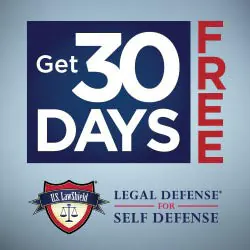Becoming a Firearms Instructor: The Path to Excellence
Hands-on training at Cajun Arms prepares future instructors
Becoming a great firearms instructor isn’t just about knowing how to shoot — it’s about mastering how to teach others to shoot safely and effectively. At Cajun Arms in West Chester, PA, we’ve seen both sides: instructors who build their foundation through mentorship and apprenticeship, and those who try to go it alone. The difference shows.
Many aspiring trainers believe they can bypass the apprenticeship process, but the truth is, the path to excellence in firearms instruction requires more than range time. It’s about preparation, humility, continuous learning, and a commitment to your students.
Why Apprenticeship Matters in Firearms Instruction
A structured apprenticeship or assistant instructor program is the most thorough path to becoming a professional firearms instructor.
Watching a senior instructor run a class provides critical insight into:
-
Course administration: how to structure training safely and effectively
-
Diagnostic skills: how to identify and fix student errors in real time
-
Range safety protocols: ensuring every student leaves the range uninjured
-
Classroom management: keeping students engaged, focused, and progressing
“Every good instructor was once a great student.”
At Cajun Arms, we encourage aspiring instructors to earn their stripes the right way. Starting as a Range Safety Officer (RSO) or assistant instructor allows you to build real-world experience before stepping into the lead role.
Learning from Those Who Came Before You
The pioneers of this industry didn’t become exceptional by skipping steps. They made mistakes, learned from them, and developed proven techniques. By respecting their experience — not discounting it — you gain a level of insight that can’t be replicated by watching YouTube videos or reading forums.
I’ve personally had exceptional mentors and a few less-than-great ones. Each experience taught me something — what to do, and what not to do. The best instructors stay humble and keep learning.
The Dangers of Skipping the Foundation
Too often, new instructors prioritize speed, gear, and flashy drills over sound teaching methodology. They may be great shooters, but shooting well doesn’t automatically make someone a great teacher.
Without mentorship or structured training, new instructors often struggle with:
-
Explaining complex concepts clearly
-
Adjusting to different learning styles
-
Diagnosing shooting issues accurately
-
Maintaining composure under pressure
-
Handling administrative tasks on and off the range
Students pay the price for those shortcomings. And since many students only take one concealed carry class or self-defense training course in their lives, your instruction may directly affect their ability to survive a violent encounter— or avoid legal trouble.
Building Credibility Through Experience
Real-World Teaching vs. Theoretical Knowledge
The reality is simple: if you want to teach advanced gunfighting skills, CCW (concealed carry) training, or defensive shooting, you need to invest time learning from seasoned professionals.
Accountability and Responsibility
Every lesson you teach has real-world implications. Firearms training isn’t just about marksmanship — it’s about decision-making, accountability, and understanding legal use-of-force principles. A mistake in your teaching could cost someone their freedom… or their life.
The Right Way to Start
Becoming a respected instructor isn’t about skipping ahead — it’s about earning your place through consistent, quality work.
Here’s how to get started the right way:
-
Apprentice under a qualified instructor. Help with range prep, cleanup, and observe how classes are run.
-
Assist in classes you’ve already taken. You’ll learn different perspectives as an assistant.
-
Invest in your education. Continue training at a professional level, including concealed carry certification, defensive pistol training, and instructor development courses.
-
Embrace the white belt mentality. Stay humble, curious, and hungry to improve.
Most established instructors — Cajun Arms included — welcome motivated apprentices. If you’re willing to learn, opportunities will follow.
Teaching Firearms Is a Privilege
Whether you teach beginners how to handle their first firearm or advanced students how to move and shoot defensively, firearms instruction is a privilege and a huge responsibility. Apprenticeship isn’t about ego — it’s about showing that you care more about your future students than your status.
If you’re a student, vet your instructor carefully. If you’re an instructor, never stop improving. The people you teach may someday rely on your training to survive.
Ready to Take the Next Step?
If you’re serious about becoming a firearms instructor in Southeastern Pennsylvania, Cajun Arms can help you build the skills, mindset, and credibility you need to succeed.
👉 Book a class to elevate your shooting skills
👉 Contact us about instructor development opportunities
- AR15 for Home Defense: Choosing the Right Gun for the Job
- Understanding Self-Defense Laws and Concealed Carry in Pennsylvania: A Comprehensive Overview
- Low-Light Defensive Shooting: Techniques You Won’t Learn on the Square Range
- Defensive Mindset: How to Stay Calm and Think Under Stress
- Why De-Escalation Training Completes a Well-Rounded Defensive Education
- Self Defense Training for Your Family in Uncertain Times
- How Often Should You Train With Your Concealed Carry Firearm?
- Where to Sell Used Firearms: Why Cajun Arms is Your Premier PA Choice
- Why Training Outdoors in Winter Matters More Than You Think
- Why Most Gun Owners Fail Under Stress — And How Stress-Inoculation Training Fixes It
- Avoidance and Awareness: Your First Line of Self-Defense
- Mental Preparation for Defensive Shooting Class
- Mental Preparation for Defensive Shooting: The Missing Link for CCW Holders
- 2025/26 Trends in CCW & Concealed Carry: What Every Responsible Gun Owner Should Know
- Mastering Speed and Precision in Defensive Pistol Training: A Complete Guide
- Why Small Unit Tactics (SUT) Don’t Work for Civilians — And What Does: A Cajun Arms Guide
- What to Expect in a Defensive Pistol Class
- Essential AR15 Maintenance Tips for Maximum Reliability and Long Service Life
- Bad Guys Come Out in the Heat
- Looking for “Firearms Training Near Me”? Here’s What to Expect—and How to Choose the Right Instructor
- Speed vs. Precision: What Matters Most in a Defensive Shooting?
- Dynamic Movement & Shooting: Train Like You Fight
- Firearms Training and Home Defense
- From Basics to Advanced: Tactical Shooting Courses at Cajun Arms
- Firearms Training Near Me - Cajun Arms West Chester, PA
- Master Your AR-15 with Expert Training at Cajun Arms
- Defensive Pistol Training for Self-Defense — Cajun Arms
- Choose the Best Home Defense Firearm — Cajun Arms Guidance
- Becoming a Firearms Instructor: The Path to Excellence
- Empowerment Through Precision: Elevating Your Self-Defense Firearm Skills
- Training Scars: Breaking Free From Flat-Range Habits
- Vehicle Defense
- WATCH WHAT YOU FEED YOUR GUN
- CAN YOU BE ACCOUNTABLE FOR YOUR SPEED?
- Training with Micro-Compacts
- A Follow Up to the “Hardest Shooting Fundamental”
- So You Want To Go Fast?
- The Hardest Shooting Fundamental: Mastering Follow-Through
- Why Are You Just Standing There? Shooting From Unconventional Positions
- New Gun, New Habits
- Home Defense Shotgun Set Up
- What Should I be Doing at the Range?
- Fighting From The Ground
- Take Charge of Recoil, don’t let it control you…
- Think Before You Speak
- Grab a Partner
- The Risks of Being Nice
- Lead With Your Eyes (not your muzzle)
- Train as You Carry… Leave the competition and tactical gear behind
- KNIFE VS GUN - A quick scenario to ponder
- Frankengun vs. Factory: Choosing a Reliable AR for Self-Defense
- Memory - Program Yourself
- Training for Injury
- Lights and Lasers and YouTube Ninjas
- Our Stance on Your Stance
- Training for More Than One Attacker…
- Keep Your Head On - Consistency
- Defensive Shotgun Accessory Do’s and Don’ts
- Charlottesville - lies and hypocrites
- Keep Your Finger Off the Trigger…
- …and Re-holster
- Unauthorized persons…
- Focus on What will Save Your Life
- Train for Success with your Firearms
- Every Day is a Good Day to Be Ready
- Appendix Carry - Is it right for you?
- Learn to See the Light: Low-Light Firearms Training You Can Use
- Anti-Gun Sentiment on the Internet: How It Affects Lawful Firearms Owners
- Point Shooting: Does it work? Do you know what it is?
- About your self-defense carry ammo...
- See the Whole Picture... Know how to reload reflexively
- One-Handed Shooting
- Every Bullet Has a Price
- On Magazine Changes... fighting for your life
- There is Such a Thing as Too Fast...
- A Threat at Arm's Length
- In defensive shooting, missing your target has consequences...
- Operating out of your Comfort Zone...
- Every Bullet Has A Price - Operational Speed
- Car and Truck Gun Safety: Protect Yourself Responsibly
- Keep a Clear Head
- Get Training!
- Women and Firearms at Cajun Arms

